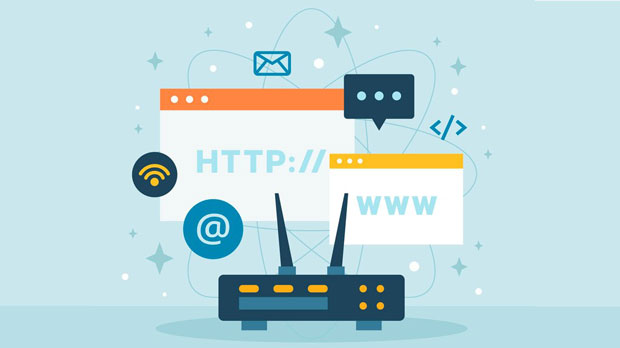In the ever-evolving landscape of e-commerce, businesses are constantly seeking ways to enhance their data monitoring and ensure the validity of their advertising campaigns. One solution that has gained traction in recent years is the use of proxies, specifically " buy proxy" services. These tools enable businesses to manage and monitor their online activities anonymously, providing a distinct advantage in tracking competitors, testing advertisements, and monitoring e-commerce data without revealing their identity. But is "buy proxy" truly suitable for e-commerce data monitoring and ad verification? This article delves into the benefits and challenges associated with using proxies for these purposes, exploring their value for businesses in the digital age. What is Buy Proxy and How Does It Work?Before exploring whether buying proxies is suitable for e-commerce data monitoring and ad verification, it’s important to understand what they are and how they function. Proxies are intermediary servers that act as gateways between users and the internet. By using a proxy server, businesses can route their internet traffic through different IP addresses, thus masking their real identity.There are different types of proxies, including data center proxies, residential proxies, and mobile proxies, each with distinct advantages depending on the use case. When businesses "buy proxy" services, they often gain access to these types of proxies to manage their online data monitoring activities efficiently.E-commerce businesses, in particular, can benefit from proxies to:1. Bypass geographical restrictions and monitor competitors' prices.2. Gather data without being blocked or flagged by websites.3. Conduct ad verification to ensure their ads are being displayed correctly across various regions and platforms.The Role of Proxies in E-commerce Data MonitoringEffective data monitoring is crucial for e-commerce businesses to stay competitive. With proxies, businesses can obtain valuable insights about market trends, competitor behavior, and customer preferences without compromising their anonymity.1. Tracking Competitor Pricing and StrategiesIn the e-commerce world, competitive pricing is key. By using proxies, businesses can access competitor websites from different locations to monitor product pricing, inventory levels, and promotional offers. Proxies allow businesses to simulate customer behavior without triggering security systems or anti-scraping measures set up by competitors. This data can be used to adjust pricing strategies and remain competitive in a fast-paced market.2. Avoiding Data Blockage and IP BansSome websites implement measures to prevent excessive scraping or monitoring of their content. This often results in IP blocks or temporary bans for users who attempt to extract too much data. Proxies allow businesses to avoid this issue by rotating IP addresses. With proxy services, businesses can distribute requests across a wide range of IPs, thus reducing the risk of being blocked and ensuring continuous access to valuable e-commerce data.3. Real-time Data CollectionProxies also facilitate real-time data collection. For example, businesses can monitor stock levels, pricing changes, and promotional activities of competitors continuously without interruption. This data helps e-commerce platforms adjust their strategies in real time, improving their decision-making processes and optimizing their performance.Utilizing Proxies for Ad VerificationAd verification is an essential aspect of any digital marketing campaign. For businesses that rely heavily on online advertising, ensuring that their ads are displayed correctly, in the right regions, and to the intended audience is paramount. Proxies offer an effective solution to verify ad delivery and measure campaign performance.1. Geo-targeting VerificationMany ads are targeted to specific geographic regions based on user preferences or business needs. Proxies allow businesses to simulate ad viewing from various locations, ensuring that geo-targeting features are functioning as intended. With proxies, advertisers can verify that ads are being served to users in the correct regions and are displayed according to the location-based targeting settings.2. Verifying Ad PlacementIt is not uncommon for businesses to find that their ads are not being displayed as promised by the ad networks. By utilizing proxies, businesses can ensure their ads appear on the intended websites and platforms. With proxy servers that provide different IPs, businesses can perform regular checks to verify if their ads are being displayed accurately across various publishers, and if they are aligned with campaign goals.3. Detecting Fraudulent ActivitiesAd fraud is a growing concern in the digital advertising industry. Proxies can help detect fraudulent activities, such as click fraud, by monitoring ad impressions and clicks from various locations and devices. By rotating IP addresses, businesses can detect suspicious patterns in ad clicks or impressions that may signal fraudulent activity, allowing them to take corrective action promptly.The Benefits of Using Proxies in E-commerce and Ad VerificationUsing proxies for e-commerce data monitoring and ad verification offers numerous advantages for businesses in a competitive digital environment.1. Enhanced Privacy and SecurityBy using proxies, businesses can mask their IP addresses and avoid exposing sensitive data. This is especially important when gathering competitive intelligence or monitoring online campaigns. Proxies provide an additional layer of security, ensuring that businesses’ online activities remain anonymous.2. Improved Efficiency and AccuracyProxies streamline the data collection process by allowing businesses to access information from multiple sources simultaneously. This helps to increase efficiency in monitoring competitor pricing, tracking market trends, and verifying ad performance. Businesses can gather more accurate data without the risk of blocking or restrictions, which helps inform better decision-making.3. Cost-Effective SolutionsIn the long term, using proxies for data monitoring and ad verification can prove to be a cost-effective solution. Instead of investing in expensive data collection infrastructure or facing the consequences of ad fraud, proxies offer a scalable way to monitor data and validate advertising activities across multiple platforms at a relatively low cost.Challenges and ConsiderationsWhile there are significant benefits to using proxies, there are also some challenges and considerations to keep in mind.1. Quality of Proxy ServicesNot all proxy services are created equal. Businesses need to choose reliable proxy providers that offer fast, secure, and diverse IP addresses. Low-quality proxies can lead to slow data collection, frequent blocks, and poor overall performance, ultimately negating the benefits.2. Compliance and Legal ConsiderationsIt is important to ensure that proxy usage aligns with legal and ethical guidelines. Some websites may have terms of service that prohibit the use of proxies for data scraping or ad verification. Businesses must make sure they are not violating any laws or contractual agreements when utilizing proxies for these purposes.3. Costs and MaintenanceWhile proxies can be cost-effective, the expense of maintaining a large number of proxies for extensive data monitoring or ad verification can add up. Businesses need to evaluate the return on investment (ROI) when using proxies and weigh the costs of proxy subscriptions, maintenance, and management against the benefits.Conclusion: Is Buy Proxy Worth It for E-commerce and Ad Verification?In conclusion, "buy proxy" services offer valuable tools for e-commerce businesses and digital marketers seeking to monitor data, track competitor activities, and ensure the effectiveness of advertising campaigns. By enabling anonymous browsing, avoiding IP blocks, and providing geo-targeting capabilities, proxies can enhance data collection, ad verification, and fraud detection processes.However, businesses should carefully consider the quality, legality, and costs of proxy services to ensure they maximize the benefits while minimizing potential risks. When used properly, proxies are a powerful asset that can help businesses stay competitive in the fast-paced world of e-commerce and digital advertising.
Aug 12, 2025



































































